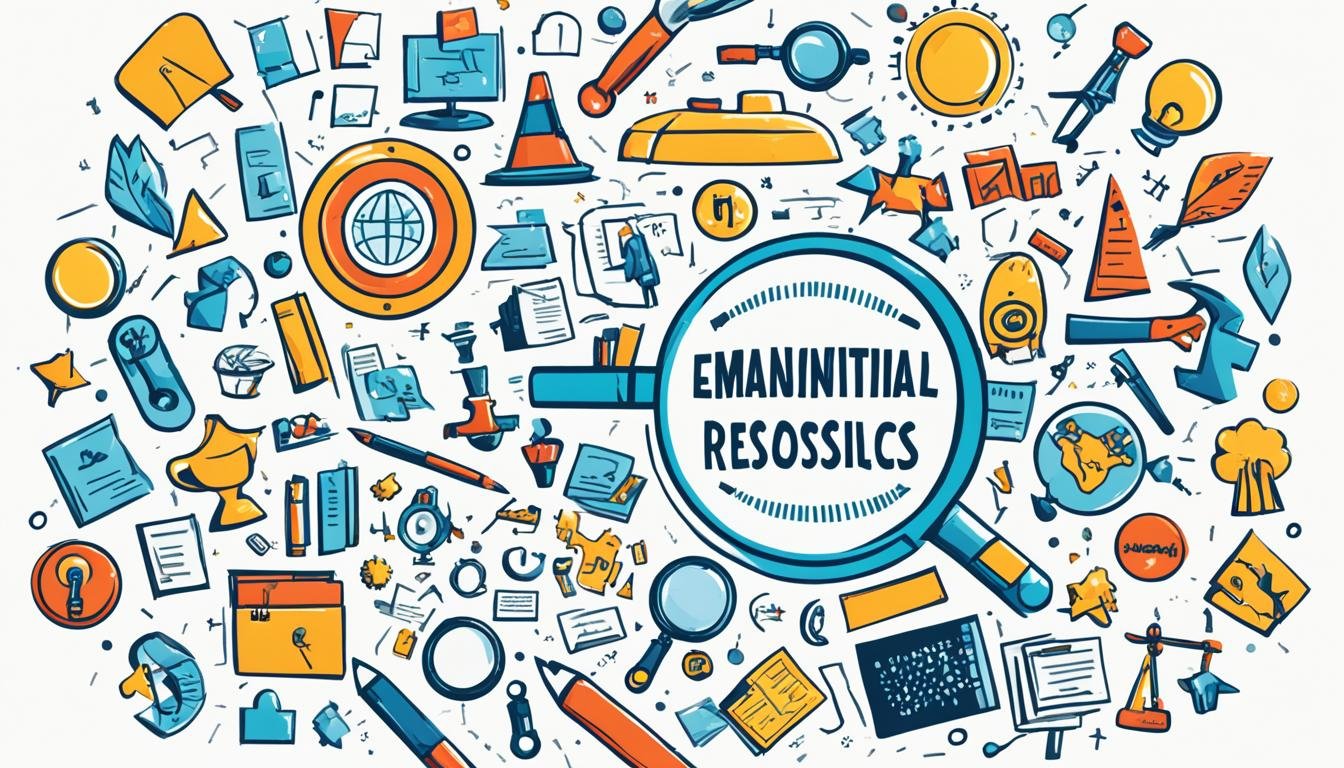Essential Soft Skills for Human Resources Pros
“Success in management requires learning as fast as the world is changing.”
– Warren Bennis
In today’s fast-paced and ever-changing work environment, the role of human resources professionals has become more critical than ever. As technology continues to advance and workplaces become more diverse and globalized, HR professionals need more than just technical expertise to excel in their roles. They must possess a set of essential soft skills that allow them to effectively navigate interpersonal dynamics, communicate with empathy, and drive positive change.
Soft skills are the personal attributes that enable individuals to interact effectively with others and support workplace goals. These skills go beyond technical qualifications and are key differentiators for HR professionals who want to thrive in their careers. From communication and empathy to adaptability and problem-solving, developing and honing soft skills is essential for HR professionals to excel in their roles and contribute to shaping a positive work environment.
Key Takeaways:
- Soft skills are crucial for HR professionals in today’s evolving work landscape.
- Effective communication, empathy, and adaptability are among the essential soft skills for success in HR.
- Problem-solving and organizational skills are also key attributes for HR professionals to excel in their roles.
- Developing soft skills is essential in building strong relationships and supporting workplace goals.
- Successful HR professionals continually learn and adapt to meet the changing needs of the workforce.
What Are Soft Skills?
Soft skills are essential qualities that enable individuals to interact more effectively with others, relying on emotional intelligence rather than technical expertise. In the context of human resource management, soft skills encompass how HR professionals engage with others to support organizational goals. These skills are about who you are and how you behave, and they play a crucial role in the success of HR professionals.
Soft skills can be seen as the interpersonal skills that allow HR professionals to navigate complex human interactions and build positive relationships. These skills are intangible, often difficult to quantify, but they are highly valued in the workplace.
“Soft skills are the competencies HR professionals utilize to connect, collaborate, and communicate with individuals across all levels of the organization. They are the foundation of effective human resource management.”
Soft skills encompass a range of qualities, including:
- Emotional Intelligence: Soft skills rely heavily on emotional intelligence, which involves being aware of and managing one’s own emotions as well as understanding and empathizing with the emotions of others. This allows HR professionals to navigate sensitive situations and build rapport with employees.
- Interpersonal Skills: Soft skills in human resource management emphasize effective communication, active listening, and the ability to relate to others. Strong interpersonal skills enable HR professionals to create a collaborative and inclusive work environment.
- Adaptability: HR professionals need to be adaptable in a dynamic and ever-changing work environment. This includes being open to new ideas, embracing change, and quickly adjusting to shifting priorities.
- Problem-Solving: Soft skills encompass problem-solving abilities, enabling HR professionals to approach challenges with creative thinking, strategic planning, and the ability to remain calm under pressure.
In summary, soft skills are the qualities that define how HR professionals interact and engage with others, contributing to their success in human resource management. These skills go beyond technical expertise and are essential for building relationships, fostering collaboration, and supporting the overall goals of the organization.
Soft Skills in Human Resource Management
| Soft Skill | Description |
|---|---|
| Emotional Intelligence | The ability to understand and manage emotions, both one’s own and those of others, to facilitate positive interactions and relationships. |
| Interpersonal Skills | The ability to communicate effectively, actively listen, and relate to others, fostering a collaborative and inclusive work environment. |
| Adaptability | The capacity to embrace change, be open to new ideas, and quickly adjust to shifting priorities and circumstances. |
| Problem-Solving | The ability to approach challenges with creative thinking, strategic planning, and a calm demeanor to find effective solutions. |
Note: The table provides a summary of the key soft skills in human resource management, highlighting their importance and relevance in the field.
Why Are Soft Skills Important in HR?
Soft skills play a vital role in the field of human resources (HR) by enabling HR professionals to improve employee experience and provide effective support in the workplace. While technical knowledge is undoubtedly important, it is soft skills that allow HR professionals to make a real impact.
HR professionals often find themselves dealing with people-heavy work, such as managing relationships, handling conflicts, and driving change. These tasks require strong interpersonal skills and the ability to connect with others on a deeper level.
Soft skills help HR professionals build relationships with employees, colleagues, and stakeholders, fostering mutual trust, respect, and cooperation. Effective communication, empathy, and active listening are all crucial components of successful HR interactions.
Additionally, HR professionals need to navigate change, both within the organization and in the external business environment. Soft skills like adaptability and flexibility enable HR professionals to embrace change, respond to new challenges, and lead others through transitions.
Here is a table highlighting some key soft skills that HR professionals need:
| Soft Skill | Description |
|---|---|
| Communication | Effectively conveying information, listening actively, and fostering understanding. |
| Empathy and Sensitivity | Understanding and relating to others’ emotions, perspectives, and experiences. |
| Conflict-Resolution and Negotiation | Resolving conflicts and reaching agreements while prioritizing positive employee experiences. |
| Problem-Solving | Analyzing challenges, identifying solutions, and making informed decisions. |
| Organization | Managing tasks, time, and information efficiently to ensure smooth HR operations. |
By developing and nurturing these soft skills, HR professionals enhance their ability to fulfill their roles effectively, drive positive change, and contribute to a harmonious and productive work environment.
Communication
Effective communication is a vital skill for HR professionals that encompasses various aspects of their role, ranging from giving difficult feedback to recruiting top talent and handling employee complaints. It also extends to conducting engaging training programs that promote growth and development within the organization. The ability to communicate clearly and thoughtfully, both verbally and in writing, is crucial for HR professionals to effectively convey information, build trust, and foster positive relationships with stakeholders.
One key component of effective communication is active listening. HR professionals need to actively engage in conversations, demonstrate empathy, and be fully present to understand the concerns and needs of employees and colleagues. By actively listening, HR professionals create a safe space for others to express themselves and feel heard and valued.
The Importance of Respectful Communication
Respectful communication is an essential element of effective HR communication. It involves treating others with dignity and professionalism, regardless of the circumstances. HR professionals must strive to create an inclusive and respectful environment by being mindful of their language, tone, and non-verbal cues, as well as by promoting diversity and sensitivity in their interactions.
“Respectful communication is the cornerstone of a positive work culture. It reinforces trust, encourages collaboration, and promotes a sense of belonging, which ultimately leads to employee satisfaction and organizational success.”
When HR professionals prioritize respectful communication, it cultivates an atmosphere where individuals feel comfortable expressing their thoughts and concerns openly. By fostering respectful communication, HR professionals can build strong relationships, resolve conflicts effectively, and contribute to a healthy work environment that supports employee well-being and productivity.
Key Points:
- Effective communication is crucial for HR professionals when giving feedback, recruiting, handling complaints, and conducting training programs.
- Active listening is an essential aspect of effective communication, enabling HR professionals to understand others’ perspectives and foster meaningful connections.
- Respectful communication promotes a positive work culture, encourages collaboration, and supports employee satisfaction and organizational success.
Empathy and Sensitivity
Empathy and sensitivity are crucial soft skills for HR professionals. These skills enable them to develop better understanding and connection with others, creating a positive and supportive work environment. In today’s discussions around gender and race, these skills are particularly important as they involve the ability to see others’ perspectives and relate to their emotions, even if one doesn’t have first-hand experience with the issue.
Having empathy allows HR professionals to put themselves in someone else’s shoes and understand their experiences and emotions. It enables them to approach situations with compassion and treat individuals with respect and fairness. Sensitivity, on the other hand, involves being aware of and responsive to the feelings and needs of others. HR professionals with high levels of sensitivity can create an inclusive and welcoming environment for employees from diverse backgrounds.
“Empathy is seeing with the eyes of another, listening with the ears of another, and feeling with the heart of another.”
Gender and Race: Fostering Inclusion and Equality
Gender and race are key aspects of diversity and inclusion in the workplace. HR professionals must strive to understand the unique challenges and experiences faced by individuals of different genders and races. By cultivating empathy and sensitivity, HR professionals can create an environment that values diversity and promotes equality.
Emotional intelligence plays a vital role in navigating conversations around gender and race. It involves not only acknowledging and understanding the perspectives of others but also managing one’s emotions effectively in these discussions. HR professionals with high emotional intelligence can facilitate constructive dialogues, address concerns, and promote a culture of respect and understanding.
| Importance of Empathy and Sensitivity in HR | Benefits for HR Professionals |
|---|---|
| 1. Fosters a sense of belonging and inclusivity | 1. Build stronger relationships with employees |
| 2. Enhances communication and conflict-resolution skills | 2. Improves team collaboration and morale |
| 3. Promotes cultural understanding and reduces bias | 3. Enables effective talent management and recruitment |
| 4. Supports the development of diversity and inclusion initiatives | 4. Creates a positive work environment |
Empathy and sensitivity are essential soft skills that enable HR professionals to understand and connect with others on a deeper level. By fostering an inclusive and empathetic workplace, HR professionals can contribute to a more diverse and harmonious work environment.
Confidentiality
Confidentiality is an essential soft skill for HR professionals as they often handle sensitive and private information about employees. Maintaining the confidentiality of this information is crucial for protecting employee experience and safety in the workplace. HR professionals are entrusted with personal and sometimes sensitive data, such as employee performance, disciplinary issues, medical records, and compensation details.
By ensuring trustworthiness and discretion in handling confidential information, HR professionals build a foundation of trust with employees and demonstrate their dedication to maintaining a secure and respectful work environment. When employees have confidence in the confidentiality of their personal and professional information, it promotes a culture of transparency and enables employees to freely share any concerns or issues with HR.
Adhering to the principles of confidentiality not only protects employees’ personal information but also demonstrates respect for individual privacy rights. HR professionals must handle sensitive information with utmost care, keeping it private from unauthorized parties and limiting access to those with a legitimate need-to-know. This practice also helps HR professionals uphold legal and ethical obligations, preserving the integrity and professionalism of their role.
“Maintaining confidentiality is essential as it fosters trust and open communication between employees and HR professionals. When employees know that their information is safe and will be kept confidential, they are more likely to seek assistance and share concerns without fear of any negative consequences.”
Creating a culture of confidentiality requires HR professionals to establish and enforce clear policies and procedures that guide the handling of sensitive information. Training programs on confidentiality and data protection should be implemented to ensure all HR staff members understand the importance of safeguarding information and the potential consequences of any breach.
The image below visually represents the significance of confidentiality in HR:
By prioritizing confidentiality, HR professionals demonstrate their commitment to protecting the privacy and trustworthiness of sensitive information while fostering a safe and supportive environment for all employees.
Adaptability
Adaptability is a crucial soft skill for HR professionals, especially considering the diverse workforce and ever-changing workplace policies they navigate. HR professionals not only need to embrace change themselves, but they also play a vital role in spearheading change within organizations and implementing inclusive practices.
By being adaptable, HR professionals can effectively respond to new challenges and seize opportunities to create a more inclusive and supportive work environment. They must stay abreast of evolving workplace policies and ensure that their organizations adopt practices that respect and embrace diversity. This includes fostering an inclusive culture, implementing equitable hiring processes, and promoting diversity and inclusion initiatives.
Moreover, adaptability allows HR professionals to steer organizational change and lead by example. It empowers them to challenge the status quo, identify areas for improvement, and advocate for inclusive practices that foster a sense of belonging and equal opportunities for all employees.
“Adaptability is not about blindly following trends, but about having the ability to identify and leverage opportunities that align with the organization’s values and goals while embracing the diverse perspectives of employees,” says Dr. Maya Patel, an expert in HR management.
Being adaptable demonstrates a willingness to learn and grow, even in the face of uncertainty. It allows HR professionals to effectively navigate dynamic workplaces and drive positive organizational change,” adds Patel.
| Benefits of Adaptability in HR: |
|---|
| 1. Facilitates a smoother transition during organizational changes. |
| 2. Enhances problem-solving skills in response to new challenges. |
| 3. Enables the implementation of inclusive practices and diverse workplace policies. |
| 4. Builds a resilient HR team capable of effectively supporting organizational goals. |
| 5. Creates a more inclusive work environment that values diversity and fosters employee engagement. |
Conflict-Resolution and Negotiation
Conflict-resolution and negotiation are essential soft skills for HR professionals. These skills are particularly valuable in situations such as salary negotiations during interviews and resolving conflicts between employees. HR professionals must skillfully navigate these scenarios, bringing individuals to a mutual agreement while ensuring a positive employee experience.
During interviews, HR professionals often engage in negotiation to determine fair compensation for candidates. This involves understanding the candidate’s salary expectations, aligning them with the company’s budget and policies, and reaching a mutually beneficial outcome. Effective negotiation skills can help HR professionals attract top talent and build positive employer branding.
“Negotiation is not about winning or losing. It’s about reaching an agreement that satisfies both parties.”
Conflict-resolution is another critical aspect of HR professionals’ responsibilities. Often, conflicts arise within the workplace, whether it’s between team members, between an employee and a supervisor, or within cross-functional teams. HR professionals must act as mediators, facilitating open communication and finding solutions that address the underlying issues.
When resolving conflicts between employees, HR professionals should approach the situation with empathy and fairness, ensuring that both parties feel heard and understood. By promoting effective communication and encouraging a cooperative environment, HR professionals can foster a positive employee experience and maintain a harmonious workplace.
Problem-Solving
Problem-solving is a critical soft skill for HR professionals as it involves finding solutions in difficult situations. HR professionals are often faced with challenges that require creative thinking, strategic thinking, calmness, and clear-headedness to navigate effectively. By utilizing problem-solving skills, HR professionals can analyze complex issues, identify root causes, and develop innovative approaches to resolve them.
One effective problem-solving technique is to break down the problem into smaller components and analyze each one separately. This allows HR professionals to identify patterns, explore different perspectives, and generate a range of potential solutions. Creative thinking comes into play when brainstorming ideas and considering unconventional approaches that may lead to unique and effective solutions.
Strategic thinking is also essential in problem-solving as it involves considering the long-term impact and aligning solutions with organizational goals. HR professionals need to think strategically to anticipate potential roadblocks or unintended consequences and develop contingency plans to mitigate them.
Benefits of Problem-Solving Skills in HR
- Effective problem-solving enables HR professionals to address issues proactively, preventing potential conflicts or disruptions.
- It enhances decision-making by considering various options and identifying the most effective course of action.
- Problem-solving skills help HR professionals build credibility and trust among employees, as they demonstrate the ability to find fair and unbiased solutions.
- By approaching problems with calmness and clear-headedness, HR professionals can maintain objectivity and make informed decisions.
- Problem-solving skills contribute to a positive work environment by resolving conflicts, improving communication, and fostering collaboration.
By continuously developing problem-solving skills, HR professionals can effectively navigate challenges and contribute to the success of their organizations.
Organization
Effective organization is a vital soft skill for HR professionals. Given the significant administrative tasks involved in their work, HR professionals must possess strong organizational skills to manage their workload efficiently.
By prioritizing tasks and leveraging effective time management techniques, HR professionals can ensure they complete their responsibilities in a timely manner. This enables them to meet important deadlines and contribute to the smooth running of the HR team.
Furthermore, good organizational skills help HR professionals maintain accurate and up-to-date employee information. This includes maintaining employee records, managing employee onboarding and offboarding processes, and ensuring compliance with applicable legal and regulatory requirements.
The Benefits of Strong Organization:
- Efficient task management
- Prompt completion of administrative tasks
- Accurate maintenance of employee information
- Smooth operation of HR processes
- Reduced risk of errors or oversights
By staying organized, HR professionals can dedicate more time and energy to high-value tasks, such as employee development, fostering a positive work culture, and strategic HR initiatives. Effective organization ultimately leads to increased efficiency, productivity, and overall success in HR roles.
To illustrate the importance of organization in HR, consider the following example:
“Strong organization skills allow HR professionals to multitask effectively and manage various administrative responsibilities simultaneously. This includes coordinating employee benefits programs, processing payroll, and ensuring compliance with company policies and state regulations. Without organization, the HR department may struggle to meet important deadlines, resulting in delayed employee benefits, payment errors, and potential compliance issues.” – Sarah Thompson, HR Manager at XYZ Company.
Conclusion
Soft skills play a crucial role in the success of HR professionals. While qualifications are important, it is the presence of effective soft skills that truly distinguishes exceptional HR professionals from the rest. Skills such as communication, problem-solving, professionalism, and other key attributes enable HR professionals to thrive in their roles and make a significant impact in shaping a positive work environment.
Developing and nurturing these soft skills is essential for HR professionals to excel in their careers. Strong communication skills allow for effective collaboration and understanding, enabling HR professionals to build relationships and foster a supportive workplace culture. Problem-solving skills enable creative and strategic thinking, helping HR professionals navigate challenging situations and implement forward-thinking solutions.
Furthermore, professionalism is a key quality that HR professionals must demonstrate in their interactions and actions. It includes maintaining confidentiality, exhibiting ethical behavior, and consistently acting with integrity. These professional qualities inspire trust and confidence among employees and stakeholders, bolstering the HR professional’s effectiveness.








